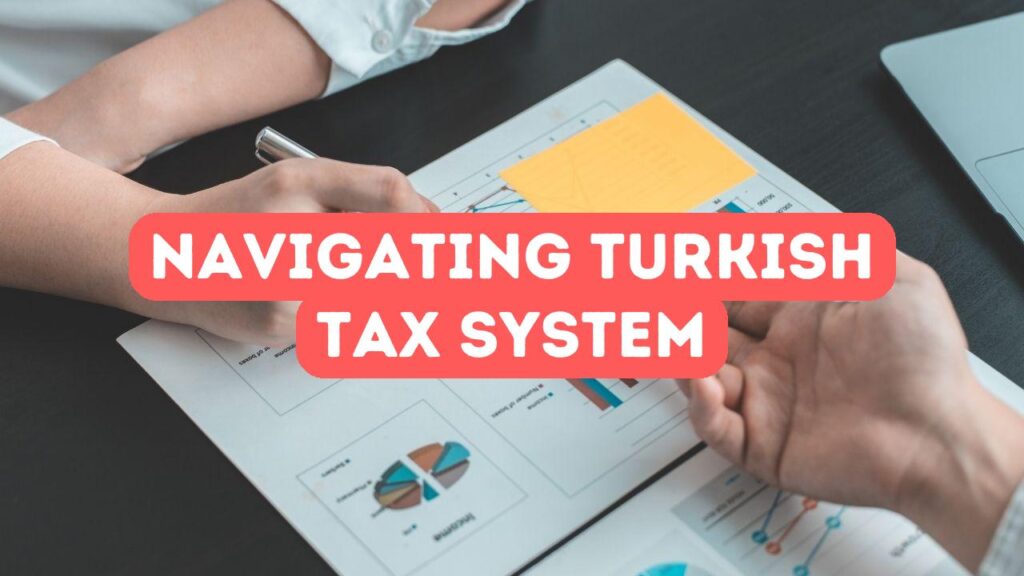Navigating the Turkish tax system is a pivotal aspect for foreign investors and new residents striving to establish themselves in Turkey. As a country that is increasingly attracting global interest for its strategic geographical location, burgeoning economy, and appealing investment opportunities, understanding the local tax regulations is paramount. At Gordion Partners, we recognize the complexities and nuances involved in Turkish tax legislation, which can often be a daunting prospect for newcomers. Our comprehensive guidance is designed to simplify this process, ensuring compliance while optimizing your financial commitments. In this blog, we will provide a detailed overview of the Turkish tax structure, tips for managing your obligations efficiently, and insights into current tax incentives for foreign investors.
Understanding Tax Obligations in Turkey
Understanding tax obligations in Turkey starts with grasping the key types of taxes that residents and businesses are subject to. The primary taxes include income tax, value-added tax (VAT), corporate tax, and property tax. Income tax rates in Turkey are progressive, varying from 15% to 40%, depending on your income level. Corporate tax is set at a flat rate of 23% for 2023, and VAT generally stands at 18%, though reduced rates of 8% and 1% can apply to specific goods and services. Property taxes depend on the location and type of real estate, with rates ranging from 0.1% to 0.6%. Familiarizing yourself with these fundamental tax categories and their respective rates is the first step in ensuring compliance and efficient financial planning as a foreign investor or new resident in Turkey.
It’s essential to understand the filing deadlines and payment schedules for these taxes to avoid penalties and ensure smooth financial operations. Income tax declarations for individuals are generally due by the end of March for the previous year’s income, while corporate tax returns must be filed by the end of April. VAT returns need to be submitted monthly, by the 24th of the following month, and payments are due by the 26th. Property tax payment schedules may vary based on local municipalities but are typically required to be paid biannually in May and November. Staying updated on these timelines is crucial, as is maintaining accurate financial records to facilitate timely compliance, thereby protecting your investments from legal complications and financial setbacks.
Navigating tax incentives available to foreign investors is a critical aspect of optimizing your financial strategy in Turkey. The Turkish government offers several incentives, including reduced tax rates and exemptions, to encourage foreign investment. For example, income generated from certain investments, such as technology development zones, industrial zones, and free trade zones, can benefit from significant tax reductions or exemptions. Moreover, real estate investors may also capitalize on VAT exemptions under particular conditions, adding to the financial appeal of these ventures. Understanding and leveraging these incentives requires a detailed examination of applicable laws and regulations, and that’s where Gordion Partners can assist. By providing tailored advice and ensuring you are well-informed about the latest tax incentives, we help you make the most of your investments in Turkey.
Essential Tax Forms and Deadlines for Foreign Investors
Understanding and meeting the requirements of essential tax forms and deadlines is crucial for foreign investors in Turkey. Key forms include the annual income tax return, corporate tax return, and value-added tax (VAT) declarations, each with specific submission deadlines. For instance, personal income tax returns for individuals must be filed by the end of March for the previous year’s earnings, while corporate tax returns are due by the end of April. VAT declarations, on the other hand, are usually submitted monthly. Missing these deadlines can lead to penalties and additional financial burdens. Thus, thorough preparation and timely submission are vital in maintaining compliance and avoiding unnecessary fines.
At Gordion Partners, we emphasize the significance of keeping meticulous records of all financial transactions to streamline the tax filing process. This includes maintaining detailed and accurate accounts of income, expenses, and any tax-deductible activities. For foreign investors, it’s particularly important to understand the documentation required for any deductions and credits, which may significantly impact your overall tax obligation. Additionally, gaining familiarity with the online tax filing system, GIB (GELIRLER IDARESI BASKANLIGI), which facilitates the electronic submission of tax forms, can save time and reduce the risk of errors. Partnering with experienced tax professionals can further ensure that all filings are completed correctly and on time, allowing you to focus on your investment activities with peace of mind.
Moreover, leveraging the available tax incentives and credits can significantly enhance the financial efficiency of your investment in Turkey. The government offers various incentives for specific sectors, such as technology, renewable energy, and tourism, which can reduce your tax liabilities if properly utilized. For example, there are tax exemptions for income generated from intellectual property rights and deductions for research and development expenditures. Additionally, tax treaties between Turkey and other countries can offer benefits like reduced withholding tax rates on dividends, interest, and royalties, thereby avoiding double taxation. At Gordion Partners, we stay abreast of these opportunities and provide tailored advice to ensure our clients make the most out of Turkey’s tax benefits, ultimately maximizing their return on investment.
Maximizing Tax Benefits and Incentives in Turkey
Turkey offers a range of tax benefits and incentives aimed at attracting foreign investors and fostering economic growth. To maximize these advantages, it’s essential to stay informed about the various programs and deductions available. For instance, the Turkish government offers significant incentives in sectors like technology, renewable energy, and tourism, including reduced corporate tax rates, VAT exemptions, and R&D support. Additionally, the Special Investment Zones provide tax holidays and other perks to foreign businesses. Gordion Partners can guide you through the intricacies of these incentives, ensuring you leverage every possible benefit while maintaining compliance with local regulations.
Moreover, understanding double taxation treaties is fundamental for foreign investors aiming to optimize their tax benefits in Turkey. Turkey has established agreements with numerous countries to prevent double taxation, ensuring that individuals and businesses are not taxed on the same income in both countries. These treaties can significantly reduce tax liabilities and enhance your net returns. By navigating these agreements effectively, you can capitalize on tax credits and exemptions that align with your home country’s tax laws. Gordion Partners is adept at identifying applicable treaties, streamlining the process and ensuring that you fully benefit from these international agreements, thereby maximizing your financial efficiency.
In addition to understanding specific incentives and double taxation treaties, staying updated on recent tax reforms and regulatory changes in Turkey is crucial for maximizing your tax benefits. Regularly reviewing Turkey’s evolving tax landscape can unveil new opportunities for tax optimization, from enhanced deductions to new investment credits. Gordion Partners proactively monitors these changes, offering timely advice to help you adjust your tax strategies accordingly. Our tailored approach ensures that your investment decisions align with the latest tax policies, protecting your interests and fostering sustainable growth. Leveraging our expertise allows you to navigate the Turkish tax system with confidence, ensuring you make the most of all available benefits and incentives.






